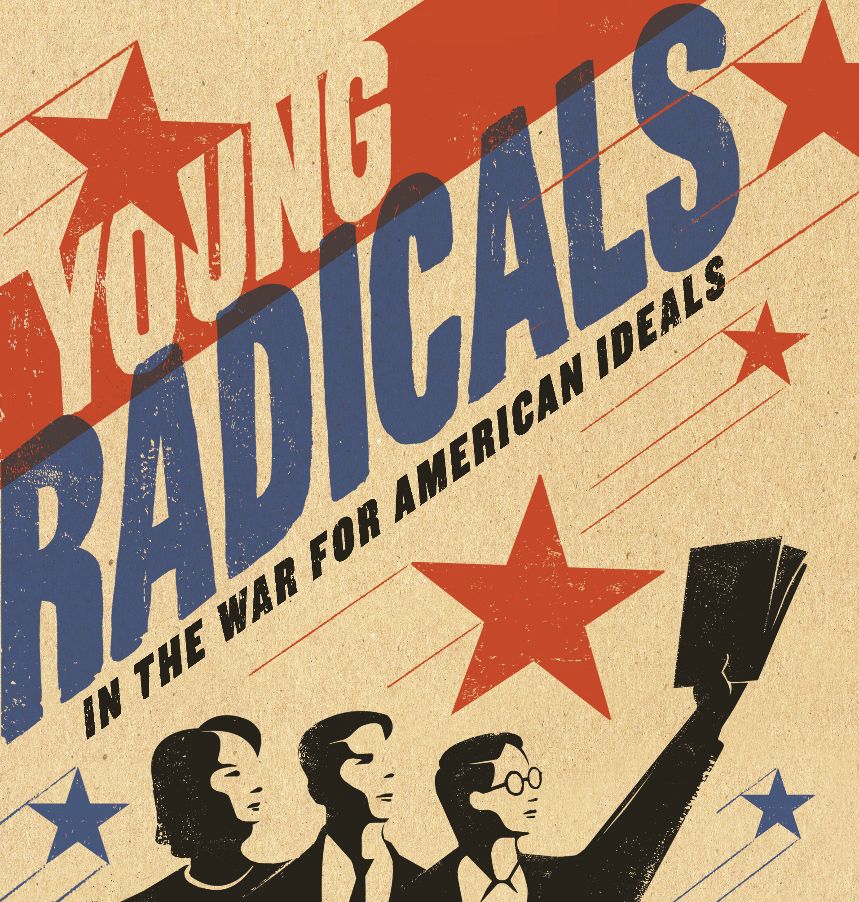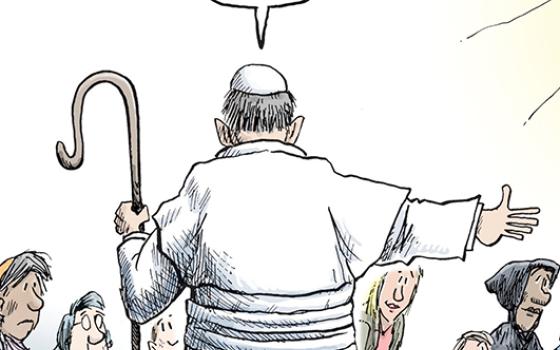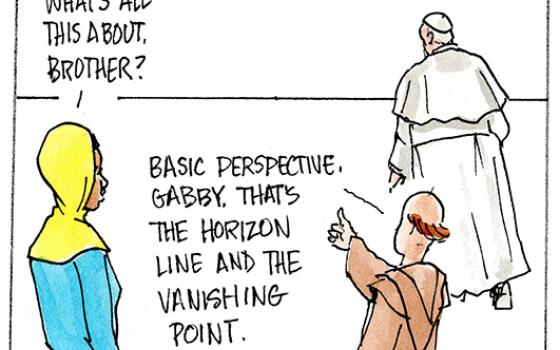
Cover of "Young Radicals" by Jeremy McCarter (Penguin Random House)
The second decade of the 20th century was a heady time for progressives. A Democrat with liberal leanings on most issues, Woodrow Wilson entered the White House. The labor movement was getting stronger, and the suffragettes were taking to the streets. In 1914, Herbert Croly launched The New Republic, which would serve as a flagship for liberalism for the rest of the century. Progressivism had the wind in its sails, and high ideals shaped the political and social landscape.
In 1917, the United States entered World War I, and the whole idea of progress seemed as dead as the millions in the trenches of Flanders. Yet some progressives did not abandon their hopes. They persisted.
In his new book, Young Radicals In the War for American Ideals, Jeremy McCarter looks at this persistent idealism in the lives of five progressives who "didn't surrender their ideals." They are: Walter Lippmann, John Reed, Max Eastman, Alice Paul and Randolph Bourne. "The only way to understand ideals and the people who fight for them is to watch the story on the individual scale, where you can register personal desires, personal choices, and personal consequences," McCarter writes. "The story has to be told in close-up, not panorama."
Full disclosure: I met McCarter when he was an intern at The New Republic more than 20 years ago, and we have remained friends. I have not communicated with him since I received a review copy of this book, as is my practice.
The story begins with Lippmann working for the socialist mayor of Schenectady, New York in 1912, but he quickly grows disillusioned with the tiny steps they manage to take. "The gap between hope and reality brings him quickly to a crisis: Can he condone this sham exercise in socialism, let alone continue to be a part of it? For the first time in his overachieving life, he finds himself in a predicament with no clear way out." He decides to quit and return to New York City, but his idealism is intact. "Their era is 'bursting with new ideas, new plans, and new hopes,' he [Lippmann] writes later that year. 'The world was never so young as it is today, so impatient of old and crusty things.'"
The sentences quoted above not only disclose a lot about Lippmann, and advance the narrative, they illustrate McCarter's gift as a writer: This entire book is fluid and incisive, detailed and universal.
Back in New York City, Lippmann quickly reconnects with a classmate of his from Harvard, Jack Reed. Reed wants to be a writer and enlists Lippmann in a project that results in a 20,000-word unpublishable essay about their time at Harvard and the radicalism they tried to bring to birth. A tour of familial duty back in Oregon when his father dies gives Reed the space he needs to apply his talents to greater effect, and upon returning to New York, he shares in manuscript form an epic poem he has written about life in Greenwich Village, "A Day in Bohemia." It begins to forge his reputation and create a sense of self-identity for the Village, and young people flock to his flat at 42 Washington Square. Here are some lines that give some flavor of the poem, and of the times:
Now with an easy caper of the mind
We rectify the Errors of Mankind;
Now with a sharpness of a keen-edged jest,
Plunge a hot thunder-bolt in Mammon's breast;
Impatient Youth, in fine creative rage,
With both hands wrests the quenchless torch from Age,
Not as the Dilettanti, who explain
Why they have failed, -excuse, lament, complain,
Condemn real artists to exalt themselves,
And credit their misfortune to the elves;-
But to Gods of Strength make Offertory,-
And pit our young wits in the race for glory!
Some of the best parts of McCarter's book are the many, many quotes from the protagonists' writings, brimming with verve and idealism, at least as the story begins.
Another text that communicates the ambience of Greenwich Village in these years was the statement that ran on the front page of copies of The Masses:
This magazine is owned and published cooperatively by its editors. It has no dividends to pay, and nobody is trying to make money out of it. A revolutionary and not a reform magazine; a magazine with a sense of humor and no respect for the respectable; frank, arrogant, impertinent, searching for the true causes; a magazine directed against rigidity and dogma wherever it is found; printing what is too naked or true for a moneymaking press; a magazine whose final policy is to do as it pleases and conciliate nobody, not even its readers — there is a field for this publication in America.
The statement came from the pen of Max Eastman, the editor, who could certainly attest to the fact that no one was making money off the publication. In the summer of 1912, he had received an envelope in the mail that enclosed a torn piece of paper which read "in its entirety" McCarter notes: "You are elected editor of The Masses. No pay." With a job offer like that, who could say no? Eastman would accept the position and go on to become one of the most committed and unflinching of the young radicals.
No one was more unflinching, however, than Alice Paul. In 1913, she had already spent time in a British prison for leading protests on behalf of women's suffrage, where she began a hunger strike and was force-fed. Returning to the U.S., she joined the National American Woman Suffrage Association (NAWSA), which had been pursuing a strategy focused on winning suffrage at the state level. Paul leads a protest for women's suffrage down Pennsylvania Avenue in Washington on the eve of President Wilson's inauguration. The protest turned into a fracas, garnering the publicity Paul knew it would. Fourteen days later, Paul is part of a delegation meeting with President Wilson. He is non-committal. Impatient with both Wilson and the more cautious leadership of the NAWSA, Paul founds the National Women's Party and would agitate for a federal amendment granting women the right to vote.
Randolph Bourne is the final young radical to whom the reader is introduced. The same year Paul is leading her protest in Washington, Bourne is getting ready to graduate from Columbia University. He had delayed college to earn money, and at 27 years old, he is nervous about his future. But Bourne's writing career has already kicked off with a bang: As a sophomore, he sent an essay to The Atlantic Monthly, and they not only published it, they kept publishing additional essays by him. He brings out a book of his essays in his senior year, Youth and Life, but he confesses to a friend that he was "never young, and has only partly lived." Deformed by a childhood illness, Bourne is a hunchback, and he writes of himself that he is "a man cruelly blasted by the powers that brought him into the world, in a way that makes him both impossible to be desired and yet — cruel irony that wise Montaigne knew about — doubly endowed with desire."
I shall conclude this review tomorrow.
[Michael Sean Winters covers the nexus of religion and politics for NCR.]




